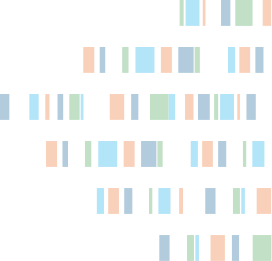Whole genome duplication plays a central role in plant evolution. There are two main classes of polyploid formation: autopolyploids which arise within one species by doubling of similar homologous genomes; in contrast, allopolyploidy (hybrid polyploidy) arise via hybridization and subsequent doubling of nonhomologous (homoeologous) genomes. The distinction between polyploid origins can be made using gene phylogenies, if alleles from each genome can be correctly retrieved. We examined whether two closely related tetraploid Mediterranean shrubs (Medicago arborea and M. strasseri) have an allopolyploid origin – a question that has remained unsolved despite substantial previous research. We sequenced and analyzed ten low-copy nuclear genes from these and related species, phasing all alleles. To test the efficacy of allele phasing on the ability to recover the evolutionary origin of polyploids, we compared these results to analyses using unphased sequences.

Home » Allele phasing is critical to revealing a shared allopolyploid origin of Medicago arborea and M. strasseri (Fabaceae)
Publications
Allele phasing is critical to revealing a shared allopolyploid origin of Medicago arborea and M. strasseri (Fabaceae)
myBaits
Daicel Arbor Biosciences
5840 Interface Dr. Suite 101,
Ann Arbor, MI 48103
1.734.998.0751Ann Arbor, MI 48103
©2025 Biodiscovery LLC
(d/b/a Daicel Arbor Biosciences)
All Rights Reserved.
(d/b/a Daicel Arbor Biosciences)
All Rights Reserved.

 Bluesky
Bluesky